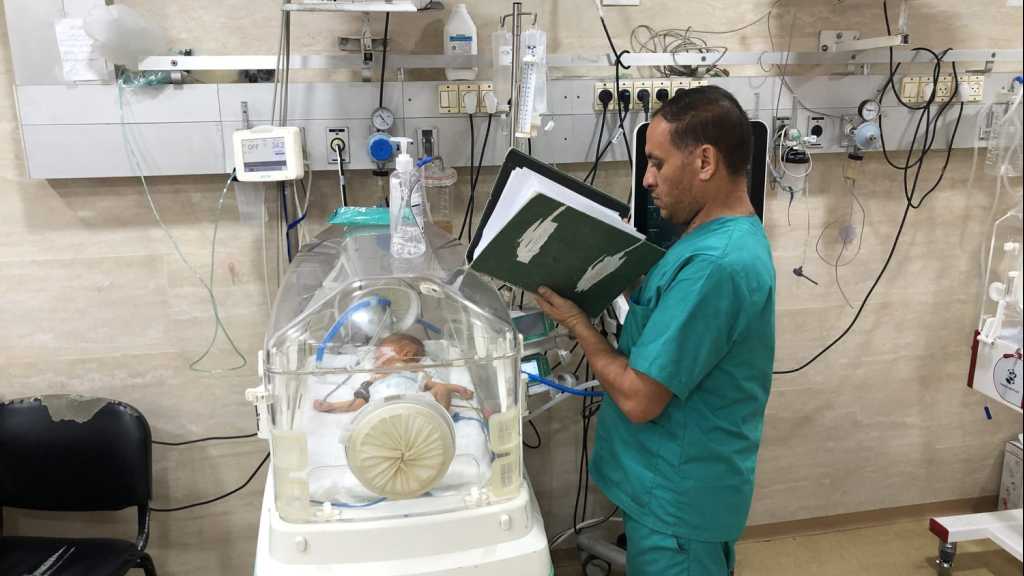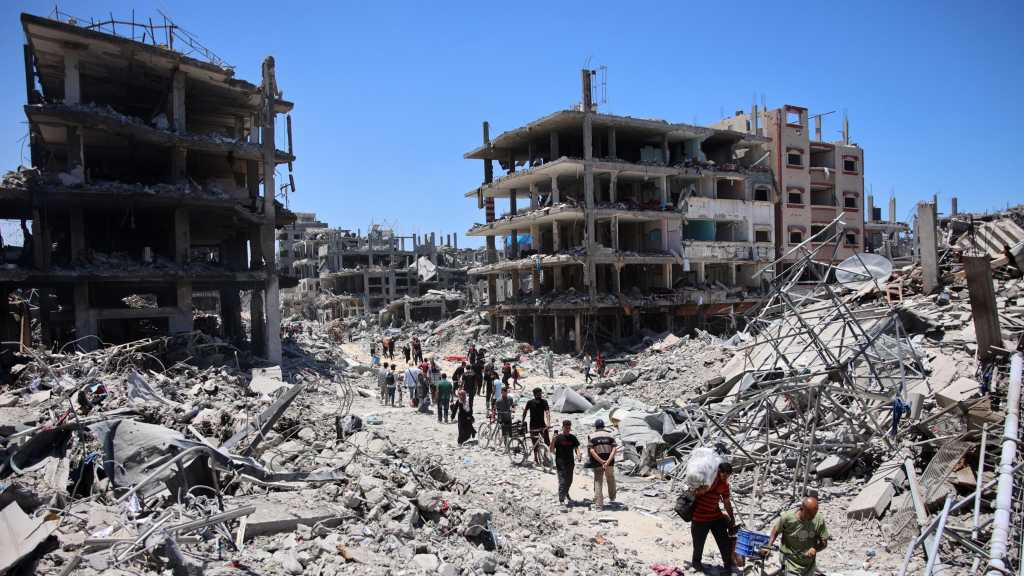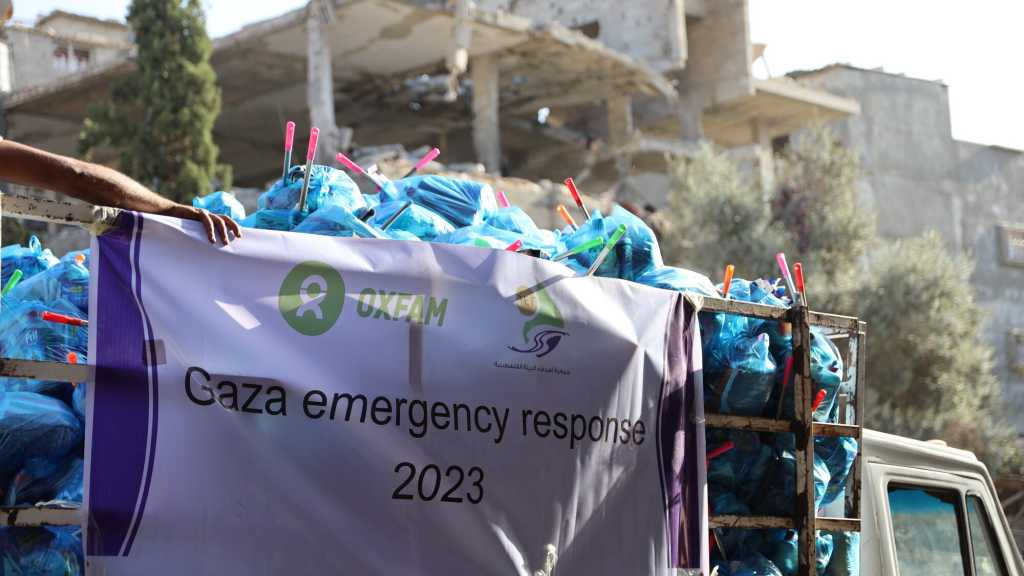
Palestinian Detainees Released from “Israeli” Jails Talk of Terrible Abuse

By Staff, Agencies
Severely damaged skin, signs of fatigue, unkempt hair and long beards - this was the state in which a number of Palestinian detainees emerged from “Israeli” prisons following six months of detention.
In the past few days, at the end of six months of renewable administrative detention, “Israel” released dozens of Palestinian detainees from several jails - people who had been arrested in the wake of the start of the aggression on Gaza on 7 October.
The evidence of mistreatment shown by the prisoners is indicative of what rights groups have warned is an unprecedented level of abuse taking place in “Israel's” jails.
Community activist Omar Assaf was among those released in recent days. Assaf, 74, was arrested on 24 October after his house in central Ramallah was stormed by the “Israeli” army. He was immediately transferred to administrative detention, which allows him to be held without trial or charge for as long as the Zionist authorities want.
He unveiled that the prison conditions were indescribably cruel, and that his appearance speaks volumes about the condition of Palestinian detainees.
“They constantly assaulted the prisoners with severe beatings, using batons, rifles, and heavy shoes," he explained.
"There were prisoners with broken ribs and limbs without providing them with any treatment."
Palestinian prisoner groups said that the “Israeli” occupation army has arrested more than 8,000 Palestinians from the West Bank alone since 7 October, including 280 women and at least 540 children.
Rights groups have documented widespread mistreatment, with the United Nations agency for Palestinian refugees [UNRWA] last week releasing a report detailing - among other abuses - detainees being urinated on and made to act like animals, and children being attacked by dogs.
Last January, while imprisoned, Assaf felt dizzy and fell to the ground, cutting his head and bleeding. He remained bedridden for two weeks without receiving any treatment.
He remained in an unstable condition. In March he appeared in court and told the judge that he had been subjected to deliberate medical negligence.
"The judge tried to deny this, so he asked me: 'What could the jailers do for you?'" he explained.
I replied: 'I am not a doctor, but I know that the simplest first aid is to try to stop the bleeding by shaving the hair, applying bandages and medicine, then stitching the wound if necessary.'"
Due to the continued bleeding, Assaf was exposed to infection, and it was found that he lost 30kg of weight due to neglect.
At around this time, “Israel” began limiting meals to Palestinian prisoners, to just one daily meal of no more than 150 grams of rice and lentils.
This is the 10th time that Assaf has been arrested, but he says that it was the cruelest detention of all, especially since almost all of the detainees were subjected to insults, beatings and ill treatment.
A researcher at the Palestine Center for Prisoner Studies, Amina Al-Tawil, narrated some of the testimonies she had gathered from Palestinian detainees.
She explained that the overwhelming majority of detainees were beaten, humiliated and assaulted, and the focus was on the head area, with the aim of causing the greatest possible damage.
Some appeared to confirm an incident involving far-right “Israeli” Minister of Internal Security Itamar Ben Gvir, during a visit to “Megiddo” prison earlier this year.
During the visit, prisoners were taken out to the yard in front of him and beaten mercilessly. Then they were tied and forced to kneel, and he passed them one by one to confirm that they had been beaten. Some of them were bleeding.
“One of the detainees looked up at Ben Gvir’s face, so a prison guard put out his cigarette in his eye, causing him to lose it,” she added.
At least 16 Palestinian detainess are thought to have died since 7 October. “Israel” has refused to hand over their bodies to their families to bury them.
Head of the Prisoners and Ex-Prisoners Affairs Authority, Qaddoura Fares, said that the policy of violent beatings, in addition to causing the death of a number of detainess, had also left many with severe psychological problems.
Mujahid Amarneh, 23, from Jenin, was arrested in 2021 and released several weeks ago. His father, Ezzedine, who was also arrested last May and released a month ago, says that when Mujahid was arrested, he was working in construction and was lively, active and social. He didn’t suffer from any physical or mental conditions.
During his stay in prison, Mujahid was beaten violently on the head twice in November and January, according to the testimonies of the detainees who were with him.
After that, he was unable to move or even go to the bathroom on his own. Then he began to suffer from other complications.
“He gradually became isolated and began to lose his speech... he doesn’t speak at all until now. He also became nervous, emotional, and sharp,” his father added.
Immediately after his release, tests were conducted on Mujahid at Ramallah Governmental Hospital, and x-rays showed that he had suffered a fracture in his shoulder bone and a severe bruise at the back of his skull.
There has been a complete blackout on the treatment of Palestinian prisoners, with rights groups relying on the testimonies of those released to document the abuse carried out against them.
The testimonies of Palestinian prisoners have horrified their families, and perhaps even more so the families of those with relatives still in jail.



